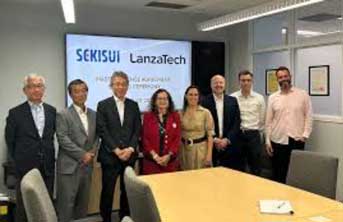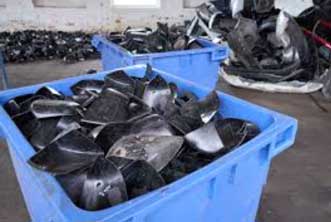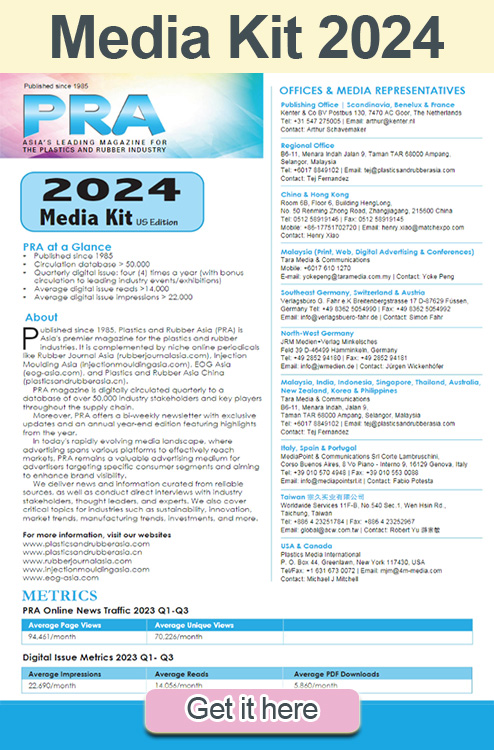Green news: LanzaTech/Sekisui to develop multiple waste-to-ethanol plants in Japan; LyondellBasell invests in recycling centre in Germany

Carbon recycling company LanzaTech has tied up with Sekisui Chemical to deploy, at commercial scale, a jointly developed platform that converts syngas derived from municipal solid waste (MSW) and industrial solid waste into ethanol. Sekisui intends to build multiple facilities in municipalities across Japan which incorporate equipment packages, engineering and advisory services, consumables, and intellectual property provided by LanzaTech.
Sekisui expects its first commercial-scale facility to produce 10 to 12 kilotonnes of ethanol annually. The ethanol output is synthetic alcohol (Japan Alcohol Association Standard (JAAS)) and can be converted into ethylene and kerosene for use as Sustainable Aviation Fuel (SAF) as well as widespread material and chemical applications such as apparel, personal care, and packaging.
This latest agreement between LanzaTech and Sekisui progresses a decade-long collaboration to divert garbage from landfills and incinerators and use it to generate feedstocks that would otherwise come from fossil resources or food crops. The Agreement follows the success of a 2017 pilot plant in Yorii-machi, Saitama, Japan, and the 2022 completion of an MSW-to-ethanol demonstration plant in Kuji City, Iwate, Japan, which has the capacity to produce approximately 400 tonnes of ethanol per annum.
Around 56 million tonnes of combustible waste is generated in Japan each year, and municipal and industrial trash are both massive and accelerating global challenges: the World Bank estimates that by 2050, humans will be generating 3.88 billion tonnes of waste each year, a 73% increase from 2020. Normally, combustible waste is either sent to landfills—emitting methane, a greenhouse gas 23 times more potent than carbon dioxide—or incinerated for power generation, with the embedded carbon emitted into the atmosphere.
With the application of this jointly developed biology-based platform, Sekisui says it can turn unsorted waste into a cost-competitive replacement for fossil fuel-derived feedstocks. The bioprocessing platform gasifies unsorted combustible waste accumulated at waste disposal facilities and converts this gas into ethanol using a microbial catalyst and gas fermentation technology that does not require any chemical catalysts, heat, or pressure.

Meanwhile in other news, chemical firm LyondellBasell (LYB) is investing in a new closed-loop preparation centre in Lich, Germany. This recycling centre is transforming plastic waste into high-quality feedstock for high-performance materials, supporting the circular economy and contributing to industry sustainability goals.
The closed-loop preparation centre supports the LYB integrated hub strategy, bringing together existing assets with new advanced sorting and recycling capabilities to create operational scale, reduce cost and capture value from plastic waste. This new centre marks a significant leap in waste processing capabilities for durable goods, such as automotive and white good appliance parts. The requirements for recycling durable goods once they’ve reached their end-of-life are complex. The materials need to be stripped of any paint, metal and other additives to get to a plastic suitable for a high-quality feedstock.
The recycling centre employs mechanical recycling to transform end-of-life automotive and appliance plastics, such as bumpers and trim, into high-quality recycled materials. These recycled materials will be incorporated into the LYB CirculenRecover product range, offering more sustainable solutions based on recycled content for demanding applications in the automotive and white goods sectors, including structural parts, interior components, and visible applications.
The Lich recycling centre is expected to reach commercial scale in the fourth quarter of 2024. This investment aligns with the company’s ambitious goal to produce and market at least 2 million tonnes/year of recycled and renewable-based polymers by 2030.
Subscribe to Get the Latest Updates from IMA Please click here
©2024 Injection Moulding Asia. All rights reserved.












